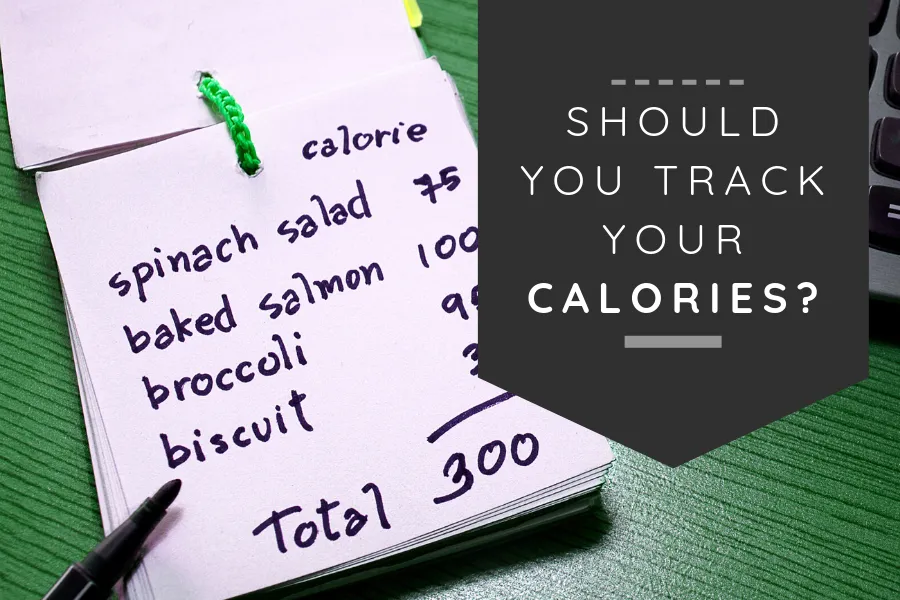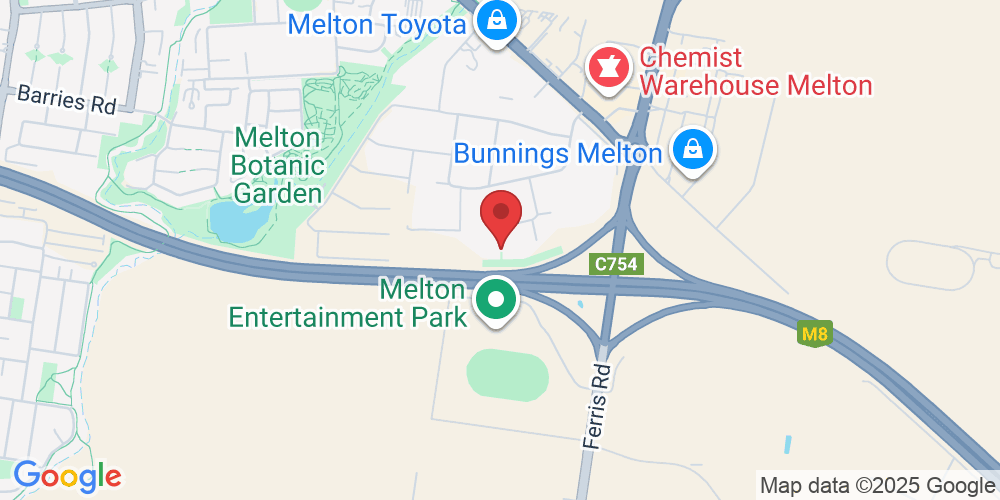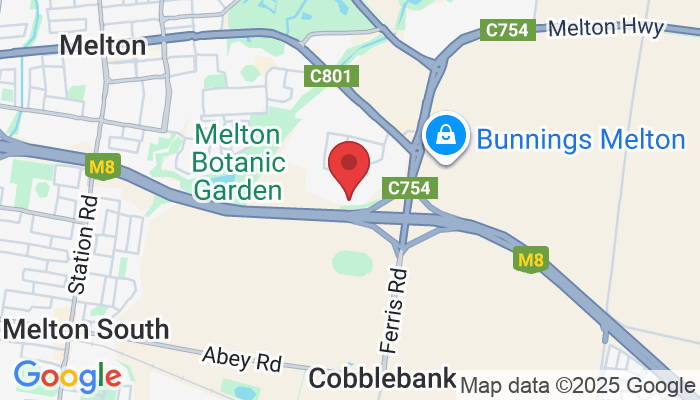Articles
Discover the latest fitness tips, workout advice, and updates from FIT40 Melton. Our blog is designed to keep you informed and inspired on your fitness journey.

Should you eat back calories from exercise?
“You don’t want to eat back the calories you burn from exercise, simply because the data is most likely incorrect.”
I’m a big advocate for activity trackers, calorie tracking and just data in general. The more you know about your journey and results, the more you can fine-tune and change the right things.
Essentially, what gets measured gets managed.
There is one grey area that is quite common when it comes to tracking calories and activity. Should you eat back your calories burnt from exercise?
The short answer is no.
There you go, article’s done. You’ll achieve all your goals now.
Really though, you don’t want to eat back the calories you burn from exercise, simply because the data is most likely incorrect.

What do I mean by eat back your calories?
Say you use MyFitnessPal, for example, it will give you a daily calorie target that should guide you towards your health and fitness goal. The problem though, is that you’ve probably already factored in your exercise for the week when you set it up.
When MyFitnessPal asks you about your activity level, it’s asking about your activity WITHOUT your planned exercise. So pretty much, how active are you with your job, your everyday life, etc.
How active are you NOT INCLUDING EXERCISE [1].
It will then calculate your required calories for fat loss or muscle gain based only on this number. If they left it here, it wouldn’t be too bad. You could exercise as you please and just eat what it tells you until you see results. If you’re losing weight too quickly, you can eat a bit more. If you’re not losing at all, you can eat a bit less.
But where the waters get a bit muddied is this whole ‘eating calories back’ scenario. If you are wearing an activity tracker that’s hooked up to MyFitnessPal, it will automatically sync up and spit out calories that you can eat because of the activity you did.
It’s moves your daily calorie target higher to accommodate for this. So, your 2000cal goal now becomes 2500cal.
We know that activity trackers aren’t very accurate, though. Research has shown that wrist-worn activity trackers can have error rates for the calories you burn ranging from 27% to a whopping 92%. Basically, you can’t trust them [2].
I’ve been wearing a WHOOP strap over the last 6 months, it’s one of the industry’s leading wrist straps. Even then the calorie expenditure it’s giving me isn’t 100% accurate for me.
I’ve been regularly eating 4000 calories per day and not gaining weight when it’s telling me I’m averaging about a 3000cal expenditure per day.

So how does this affect you? Well, we know the accuracy of the tracker is an issue. And if you’re working out to lose fat, doesn’t the thought process of “yay, I worked out, now I can eat pizza!” seem kind of wrong anyway? 🤷♂️
Let me paint a clear picture for you.
You stick to your diet all day; your calories are in check. You then exercise at 6pm. Your watch syncs up with MyFitnessPal and it tells you that you can afford 500 more calories now. Great! You can squeeze in that ice-cream you love now.
This happens every day you train this week. You eat an extra 500 calories because it said you can. 2 weeks down the track and you haven’t changed at all. What gives?
It’s over-estimated your calorie burn and you’re eating too much. Instead of being in a deficit because you ate a couple hundred calories less than what you burned, you ate those calories back and are at maintenance now.. or worse! You ate too much and you’re in a surplus.
Even in the section where you can manually add your exercise, I still wouldn’t bother. It’s no more accurate than your watch.
A better way to factor in the calories you burn from exercise is to track your progress and adjust as you go. Technology just isn’t accurate enough yet for us to blindly trust it.
If you’re sticking to your daily calorie goal (WITHOUT exercise factored in) and you’re losing weight, great! Keep it up, don’t change anything.
If you’re losing weight quite rapidly, you may want to start eating a little more on the days you exercise. You could try 200-500 calories extra. Track your progress for a couple of weeks and adjust as needed. If your progress comes to a screeching halt, reduce those extra calories again.
If you’re not losing weight at all, you may want to reduce the base number of calories you were aiming for. Keep in mind though, everything we speak about in this article is under the presumption that you are sticking to your routine and hitting the given numbers. If you’re not sticking to the plan and being consistent, whether MyFitnessPal is accurate is the least of your problems. But that’s a topic for another article.
We’ve established that activity trackers aren’t very reliable. But it’s also important to know that even the best calorie calculators can’t provide 100% accurate data. You have to take it with a grain of salt and watch your progress for a few weeks, then adjust as necessary.
If MyFitnessPal or even the calorie calculator in my Academy tells you your recommended daily intake is xxxxcals, you need to watch it and see how your body responds.
There are so many factors that go into your TDEE (Total Daily Energy Expenditure) that a simple calculator just can’t get it 100% accurate.
Start by aiming for the recommended number, and then adjust it as your body responds using the method I outlined above.
Does that mean that all activity trackers and calorie calculators are useless? No way.
There’s tremendous value in knowing these numbers, even if they’re slightly off-target. They give you a rough starting point and even though it may be incorrect, you can still see days where you burnt a bit more and days where you burnt a bit less. It’s consistent.
So, if you can see trends emerging where there’s days that your calorie burn is severely lower than other days, you can create a plan to adjust and make up for that.
Like I said at the start, I’m all for activity trackers and calorie calculators. You just have to know how to navigate the waters around them and how to pull out the most important information.

Should you eat back calories from exercise?
“You don’t want to eat back the calories you burn from exercise, simply because the data is most likely incorrect.”
I’m a big advocate for activity trackers, calorie tracking and just data in general. The more you know about your journey and results, the more you can fine-tune and change the right things.
Essentially, what gets measured gets managed.
There is one grey area that is quite common when it comes to tracking calories and activity. Should you eat back your calories burnt from exercise?
The short answer is no.
There you go, article’s done. You’ll achieve all your goals now.
Really though, you don’t want to eat back the calories you burn from exercise, simply because the data is most likely incorrect.

What do I mean by eat back your calories?
Say you use MyFitnessPal, for example, it will give you a daily calorie target that should guide you towards your health and fitness goal. The problem though, is that you’ve probably already factored in your exercise for the week when you set it up.
When MyFitnessPal asks you about your activity level, it’s asking about your activity WITHOUT your planned exercise. So pretty much, how active are you with your job, your everyday life, etc.
How active are you NOT INCLUDING EXERCISE [1].
It will then calculate your required calories for fat loss or muscle gain based only on this number. If they left it here, it wouldn’t be too bad. You could exercise as you please and just eat what it tells you until you see results. If you’re losing weight too quickly, you can eat a bit more. If you’re not losing at all, you can eat a bit less.
But where the waters get a bit muddied is this whole ‘eating calories back’ scenario. If you are wearing an activity tracker that’s hooked up to MyFitnessPal, it will automatically sync up and spit out calories that you can eat because of the activity you did.
It’s moves your daily calorie target higher to accommodate for this. So, your 2000cal goal now becomes 2500cal.
We know that activity trackers aren’t very accurate, though. Research has shown that wrist-worn activity trackers can have error rates for the calories you burn ranging from 27% to a whopping 92%. Basically, you can’t trust them [2].
I’ve been wearing a WHOOP strap over the last 6 months, it’s one of the industry’s leading wrist straps. Even then the calorie expenditure it’s giving me isn’t 100% accurate for me.
I’ve been regularly eating 4000 calories per day and not gaining weight when it’s telling me I’m averaging about a 3000cal expenditure per day.

So how does this affect you? Well, we know the accuracy of the tracker is an issue. And if you’re working out to lose fat, doesn’t the thought process of “yay, I worked out, now I can eat pizza!” seem kind of wrong anyway? 🤷♂️
Let me paint a clear picture for you.
You stick to your diet all day; your calories are in check. You then exercise at 6pm. Your watch syncs up with MyFitnessPal and it tells you that you can afford 500 more calories now. Great! You can squeeze in that ice-cream you love now.
This happens every day you train this week. You eat an extra 500 calories because it said you can. 2 weeks down the track and you haven’t changed at all. What gives?
It’s over-estimated your calorie burn and you’re eating too much. Instead of being in a deficit because you ate a couple hundred calories less than what you burned, you ate those calories back and are at maintenance now.. or worse! You ate too much and you’re in a surplus.
Even in the section where you can manually add your exercise, I still wouldn’t bother. It’s no more accurate than your watch.
A better way to factor in the calories you burn from exercise is to track your progress and adjust as you go. Technology just isn’t accurate enough yet for us to blindly trust it.
If you’re sticking to your daily calorie goal (WITHOUT exercise factored in) and you’re losing weight, great! Keep it up, don’t change anything.
If you’re losing weight quite rapidly, you may want to start eating a little more on the days you exercise. You could try 200-500 calories extra. Track your progress for a couple of weeks and adjust as needed. If your progress comes to a screeching halt, reduce those extra calories again.
If you’re not losing weight at all, you may want to reduce the base number of calories you were aiming for. Keep in mind though, everything we speak about in this article is under the presumption that you are sticking to your routine and hitting the given numbers. If you’re not sticking to the plan and being consistent, whether MyFitnessPal is accurate is the least of your problems. But that’s a topic for another article.
We’ve established that activity trackers aren’t very reliable. But it’s also important to know that even the best calorie calculators can’t provide 100% accurate data. You have to take it with a grain of salt and watch your progress for a few weeks, then adjust as necessary.
If MyFitnessPal or even the calorie calculator in my Academy tells you your recommended daily intake is xxxxcals, you need to watch it and see how your body responds.
There are so many factors that go into your TDEE (Total Daily Energy Expenditure) that a simple calculator just can’t get it 100% accurate.
Start by aiming for the recommended number, and then adjust it as your body responds using the method I outlined above.
Does that mean that all activity trackers and calorie calculators are useless? No way.
There’s tremendous value in knowing these numbers, even if they’re slightly off-target. They give you a rough starting point and even though it may be incorrect, you can still see days where you burnt a bit more and days where you burnt a bit less. It’s consistent.
So, if you can see trends emerging where there’s days that your calorie burn is severely lower than other days, you can create a plan to adjust and make up for that.
Like I said at the start, I’m all for activity trackers and calorie calculators. You just have to know how to navigate the waters around them and how to pull out the most important information.
KICKSTART
YOUR
FITNESS
RIGHT NOW!
GET YOUR FREE GUIDE NOW
KICKSTART
YOUR
FITNESS
RIGHT NOW!
GET YOUR FREE GUIDE NOW

© FIT40 Melton 2025
Privacy Policy | Terms of Use






